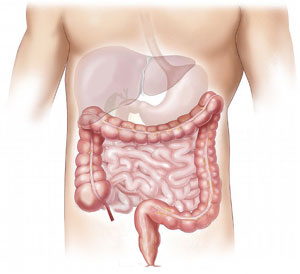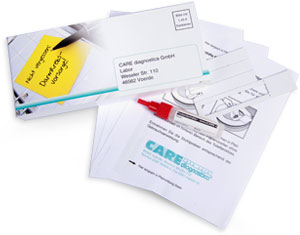CARE diagnostica has regulated the collection, processing and use of personal data in its data protection declaration, which I have read and understood.
In accordance with the privacy policy, I hereby consent in accordance with Art. 6 para. 1 a GDPR, that my data is only stored and processed for the purpose of the colon cancer screening at the company CARE diagnostica for 3 months. My address will be forwarded to Deutsche Post for sending the test. My stool sample is destroyed immediately after evaluation. My medical data are subject to medical confidentiality and documentation, and remain with CARE diagnostica Laborreagenzien GmbH under legal regulations. I hereby authorize the following information to be submitted anonymously to the organizer in the form of a statistical evaluation and a basis for billing: Total number of participants, participants male, participants female, average age, number of tests sent, Number of negative test results, number of positive test results. Otherwise, there is no data transfer to third parties. Non-consent excludes participation in colon cancer screening. Moreover, there are no disadvantageous consequences. You can stop participating in the colon cancer screening at any time by sending an e-mail to service@carediag.de. In this case, only such medical data remain, whose storage is legally obligatory. Without your agreement, participation is not possible.




